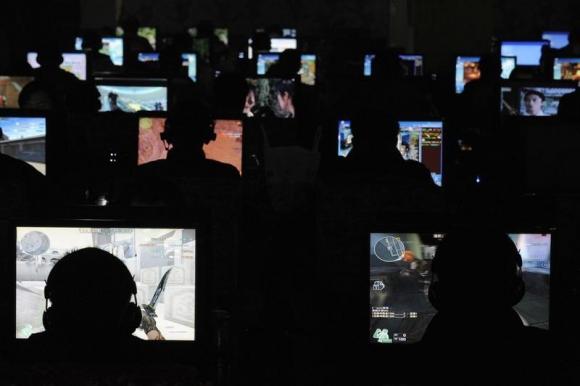For the third year in a row, China has been ranked the world’s worst abuser of internet freedom out of 65 countries surveyed by Freedom House in their 2017 Freedom of the Net report, which this year focuses on government state disinformation campaigns. The factors that helped win China its rank include the cybersecurity law that passed late last year, increased censorship on social media platforms such as WeChat, increasingly strict regulations on new media news qualifications and licensing for news services, a crackdown on virtual private networks (VPNs), and the prosecution of activists with prison time for their online advocacy. From the introduction to the China section of Freedom House’s report:
China was the world’s worst abuser of internet freedom in Freedom on the Net for the third consecutive year. New regulations increased pressure on companies to verify users’ identities and restrict banned content and services. Meanwhile, users themselves were punished for sharing sensitive news and commentary, with prison terms ranging from five days to eleven years.
The government tightened online controls in advance of the 19th National Congress of the Chinese Communist Party (CCP) in October 2017, at which President Xi Jinping, the party’s general secretary, cemented his leadership for the next five years. “Cyberspace sovereignty” has been a top policy goal under Xi, and related legal changes were incorporated into a cybersecurity law adopted in November 2016. The legislation, most of which took effect in June 2017, continued a trend of escalating requirements on internet companies to register their users’ real names, among other provisions. The law also obliges foreign companies to store Chinese user data in mainland China.
The drive to codify what were previously ad hoc censorship and surveillance strategies persisted during the coverage period, with new regulations to license digital tools like VPNs that are used to circumvent website blocking by the centralized censorship apparatus known as the Great Firewall. Other new restrictions targeted citizen journalism, and several sought to prevent websites from republishing “unverified” news from social media. According to regulations issued in May 2017, sites that are not licensed cannot provide any online news and information services.
These rules are taking their toll on civil society. A number of notable domestic websites were closed down during the past year, including Gongshi Wang, a website that sought common ground among different ideological camps regarding democracy and good governance, and Zhongmu Wang, a website serving the Hui Muslim community. At least three website operators in the civil society sector were arrested, including Huang Qi, founder of the human rights website 64 Tianwang, who was detained in December 2016 and later charged with providing state secrets to foreigners. […] [Source]
Following the publication of Freedom House’s 2017 country reports, the Cyberspace Administration of China made a statement defending Beijing’s tight control of the internet, and inviting other countries to follow suit in creating an “orderly” online environment. Reuters’ Care Cadell reports:
Ren Xianliang, vice minister of the Cyberspace Administration of China (CAC), said the rapid development of the country’s internet over two decades is proof of its success and that it advocates for the free flow of information.
“We should not just make the internet fully free, it also needs to be orderly… The United States and Europe also need to deal with these fake news and rumors” Ren told journalists without elaborating.
[…] The Cyberspace Administration also introduced laws making members of messaging app groups legally liable for content deemed offensive to socialist values.
[The report …] comes as China prepares to host the World Internet Conference, the country’s top public cyber policy forum, next month, where members of international governments and the UN will join local officials for a series of discussions on cyber governance. [Source]
The State Council Information Office (SCIO) of #China held a press conference on Thursday afternoon to introduce the preparatory work of the Fourth World #Internet Conference. #WIC2017 https://t.co/DPJwb8M9cB pic.twitter.com/MTo02qFYVO
— China SCIO (@chinascio) November 17, 2017
China also scored very poorly on Freedom House’s Freedom of the Press 2017 report, getting 87/100 (where 100 equals least free).
For more on China’s ever-expanding regime of internet censorship, see prior coverage from CDT. See also a recent essay by Elliot Zaagman at SupChina using evolutionary biology to explain survival on China’s tightly regulated internet.







